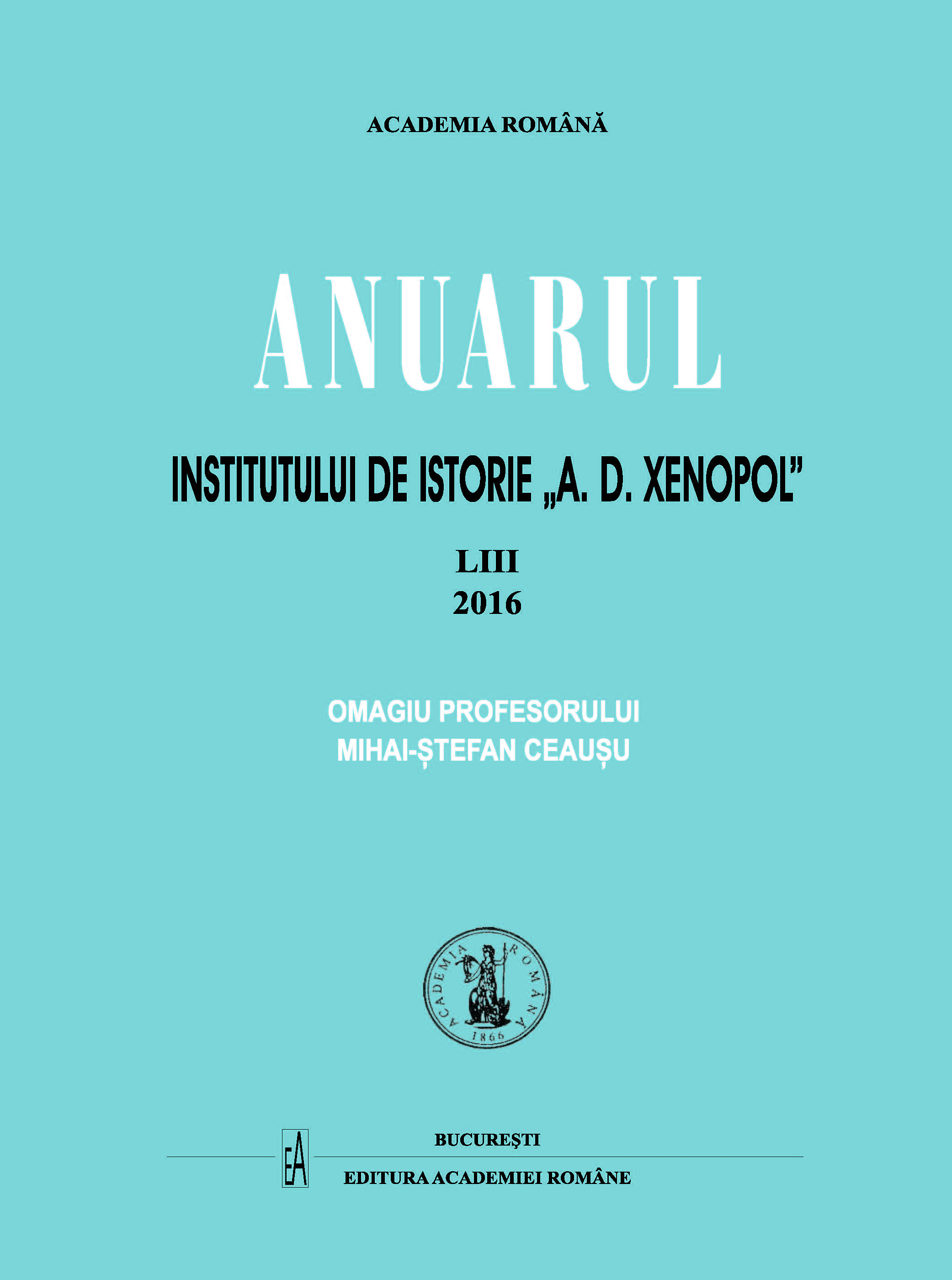ROMANIA’S CALVARY: FROM ANTONESCU’S POLITICAL REGIME TO POPULAR DEMOCRACY (1944–1948)
ROMANIA’S CALVARY: FROM ANTONESCU’S POLITICAL REGIME TO POPULAR DEMOCRACY (1944–1948)
Author(s): Marius PetraruSubject(s): History
Published by: Editura Academiei Române
Keywords: Antonescu’s political regime; popular democracy; American historiography; Soviet military occupation
Summary/Abstract: The 70th anniversary of the establishment of the communist regime in Romania may be a great opportunity to recall some of the most widely known issues, but which still carry on discussions to overcome some prevalent appreciations in the political-historical literature. After the fall of the Iron Curtain and the Communist regime in Romania, most Romanian historians paid special attention to the History of Communism and the Ceausescu regime, but American and British historiography rarely referred to the unfortunate situation in Romania between 1944−1947. In the United States only a few articles have appeared on the topic of the journals published by the Romanian-American Academy. Through this article the author aims to analyze the most important aspects related to the occupation of Romania by the Soviet military forces and the establishment of the Soviet communist regime. Another aspect less approached by American historiography is that of not honoring US-British military-economic guarantees offered to Romania by the Yalta treaty and the signing of the Moscow peace truce. That is why in our article we sought to deepen the policy of the American State Department's appeasement and the interference of the Roman-Soviet communist political circles in the establishment of the totali-tarian regime. As a result of the political changes during the years 1946−1947, we considered the first efforts of the Romanian political class in exile to reinstate the democratic rule of law and the annihilation of the pro-Soviet communist circles in Bucharest. In conclusion the author considers that owing especially to the fact that the country was under Soviet military occupation, and owing, too, to the unfortunate circumstance that the United States and Great Britain failed to make any move that might have effectively forced Soviet Russia to respect the pledges it had given at Yalta, the King of Romania was left with no choice but to give in to the Soviet Russian’s demands. He had to accept a communist-dominated government. The communist government gradually eliminated all its non-communist members; it liquidated from office the few naïve people who had believed they could collaborate with it; and the communist party took over exclusively the entire life of the country for the next forty-two years.
Journal: Anuarul Institutului de Istorie »A.D. Xenopol« - Iaşi
- Issue Year: LIII/2016
- Issue No: 53
- Page Range: 273-282
- Page Count: 10
- Language: English

